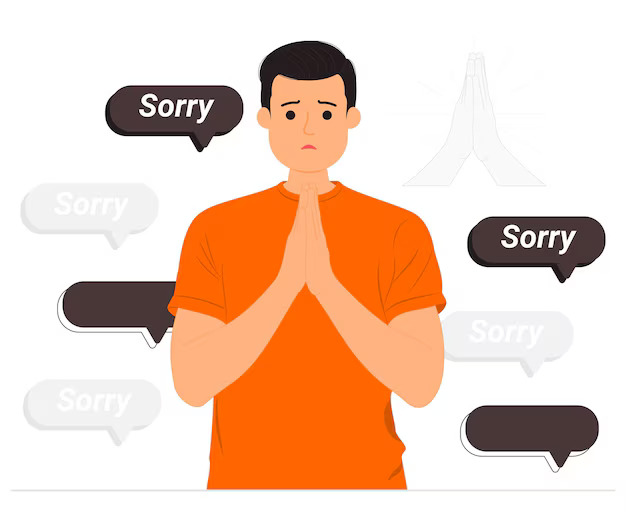A guilt complex is a burden of constant self-blame. Unlike healthy guilt, which nudges us to apologize or fix a wrong, a guilt complex is a relentless feeling of inadequacy. It’s the shadow that follows you, whispering that you’re not good enough, regardless of the situation. This can manifest as obsessing over past missteps, taking excessive responsibility for others’ problems, or even feeling guilty about good fortune. It holds you hostage to a negative self-image, draining your joy and motivation.
Is guilt complex OCD?
OCD and guilt complexes can feel similar, but they’re distinct. OCD features intrusive thoughts that trigger anxiety, which people try to neutralize with compulsions (ritualistic behaviors). Guilt complexes, on the other hand, are about a pervasive sense of inadequacy and self-blame. While OCD can cause intrusive thoughts leading to guilt, it’s not the central theme. If your guilt spirals into rituals or compulsions, seeking professional help can clarify the underlying issue.
What Causes a Guilt Complex?
If you’re struggling with a guilt complex and feel exhausted from trying to overcome it alone, consider seeking professional support through “Online counselling”.
-
Past Mistakes: Dwelling on past actions or decisions perceived as wrong can lead to chronic guilt.
-
High Personal Standards: Setting unrealistic or excessively high standards for oneself can result in feeling guilty when these standards are not met.
-
Cultural or Religious Beliefs: Cultural or religious teachings that emphasize sin and punishment can instill a strong sense of guilt.
-
Parental Influence: Parents who are overly critical or who use guilt as a form of discipline can instill a guilt complex in their children.
-
Trauma: Experiencing trauma, such as abuse or neglect, can lead to feelings of guilt, especially if the individual feels they are somehow to blame.
-
Perfectionism: Striving for perfection and feeling guilty when perfection is not achieved.
-
Negative Self-Talk: Constantly criticizing oneself or engaging in negative self-talk can reinforce feelings of guilt.
-
Empathy Overload: Being highly empathetic and taking on others’ suffering and problems can lead to unnecessary guilt.
-
Social Conditioning: Societal expectations and norms can create pressure to conform, leading to guilt when failing to meet these expectations.
-
Survivor’s Guilt: Feeling guilty for surviving a situation where others did not, such as an accident or disaster.
-
Failed Relationships: Feeling responsible for the failure of a relationship or friendship.
-
Health Issues: Guilt over being sick or disabled, believing it causes inconvenience to others.
-
Work-Related Stress: Feeling guilty for not meeting job expectations or for taking time off work.
-
Parenting Guilt: Parents may feel guilty for perceived shortcomings in raising their children.
-
Mental Health Issues: Conditions such as depression and anxiety can exacerbate feelings of guilt.
-
Lack of Boundaries: Difficulty in setting personal boundaries, leading to guilt for saying no or prioritizing one’s own needs.
Feeling overwhelmed by a persistent guilt complex? Professional “Online therapist india” can provide the support and guidance you need. While it can be challenging, there are helpful tips to manage these feelings.
How Can We Overcome the Guilt Complex?
-
Acknowledge Feelings: Recognize and accept your feelings of guilt instead of suppressing or ignoring them.
-
Identify Triggers: Determine the specific situations, thoughts, or memories that trigger your guilt.
-
Challenge Negative Thoughts: Question the validity of your guilt and whether it is justified or exaggerated.
-
Practice Self-Compassion: Treat yourself with kindness and understanding, much like you would a friend.
-
Set Realistic Standards: Adjust your expectations to be more achievable and less perfectionistic.
-
Seek Therapy: Engage in cognitive-behavioral therapy (CBT) or other therapeutic approaches to address and reframe guilt.
-
Communicate: Talk about your feelings with trusted friends, family members, or a therapist to gain perspective and support.
-
Forgive Yourself: Practice self-forgiveness for past mistakes and understand that everyone makes errors.
-
Learn from Mistakes: Use your experiences as learning opportunities rather than reasons for ongoing guilt.
-
Focus on the Present: Concentrate on current actions and behaviors rather than dwelling on past events.
-
Set Boundaries: Establish clear personal boundaries to prevent overcommitting and feeling guilty for not meeting others’ expectations.
-
Practice Mindfulness: Engage in mindfulness techniques to stay grounded and reduce overthinking.
-
Prioritize Self-Care: Engage in activities that promote your physical, emotional, and mental well-being.
-
Develop Empathy: Balance empathy with self-care to avoid taking on others’ burdens excessively.
-
Reevaluate Beliefs: Examine and, if necessary, adjust cultural or religious beliefs that contribute to unreasonable guilt.
-
Celebrate Successes: Acknowledge and celebrate your achievements and positive actions to build confidence and reduce guilt.
Overcoming a guilt complex requires a multifaceted approach that includes self-awareness, self-compassion, and practical strategies for managing negative thoughts and emotions.





